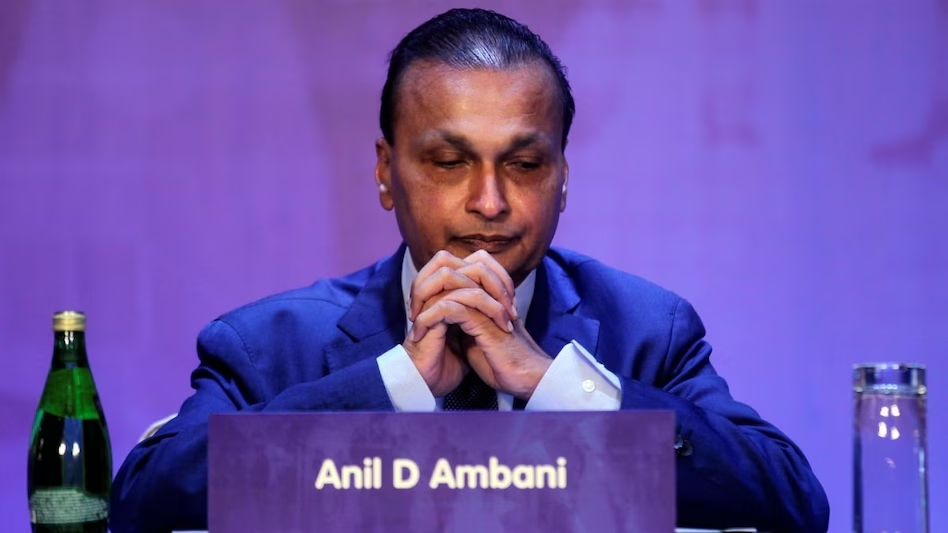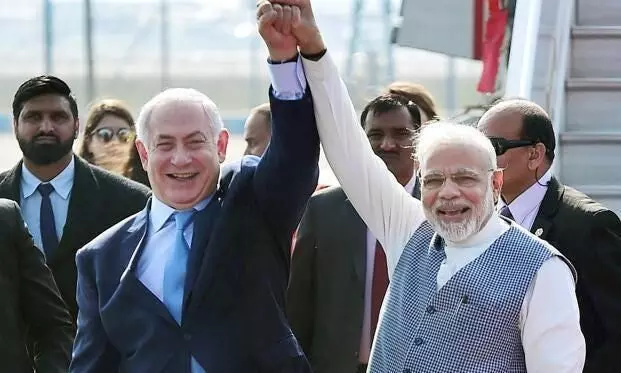
India abstains from UN vote against Israel’s occupation of Palestine
text_fieldsAmid reports suggesting India’s covert support by supplying ammunition to Israel in its ongoing attack on Gaza, India abstained from voting on a UN resolution calling upon Israel to end its occupation of Gaza and the West Bank, along with 42 other countries, reasoning that the country stands for a permanent solution through dialogue and diplomacy.
The non-binding resolution, widely supported by the international community, followed an advisory opinion by the International Court of Justice (ICJ) earlier this year, which declared Israel’s occupation of Palestinian territory unlawful.
The resolution passed with 124 out of 193 UN members voting in favour, while 43 countries, including India, abstained, and 14 nations opposed it. The resolution demanded Israel’s withdrawal from the Occupied Palestinian Territories, the cessation of new settlement activity, the dismantling of existing settlements, and compliance with the ICJ's directives.
The ICJ had previously ruled that Israel’s occupation violated international law, including the prohibition on the use of force to acquire territory.
Historically, India has supported UNGA resolutions calling for an end to the occupation, and it continues to maintain a position that supports dialogue and diplomacy as the only way to resolve the ongoing conflict.
The resolution comes at a time of heightened tensions in the region. Since Hamas launched a deadly attack on Israel on 7 October, leading to the deaths of over 1,200 people and the taking of hostages, Israel has intensified its military operations in Gaza.
The conflict has claimed more than 40,000 lives, with a disproportionate number of casualties being women and children. Amid this backdrop, the UNGA has passed four resolutions regarding the Gaza conflict since October, with India abstaining on the first resolution that condemned Israel’s invasion.
Following the initial abstention, India adjusted its stance on subsequent resolutions, including those calling for a ceasefire and seeking to elevate Palestine’s status within the UN. Despite its abstentions, India has consistently condemned the violence, referring to the conflict as the “Israel-Hamas conflict” and expressing its opposition to terror attacks on civilians. The Indian government has also voiced concern over civilian casualties but has not directly blamed Israel for the loss of life.
India's approach to the resolution was influenced by its longstanding ties with both Israel and Palestine. Officially, India supports a two-state solution and has contributed to Palestinian institution-building efforts over the years. At recent international summits, including the Gulf Cooperation Council meeting, Indian leaders emphasised the importance of an immediate ceasefire and expressed sorrow over civilian casualties, though they avoided implicating Israel in the deaths.
The international community’s response to the resolution was divided, with much of the Global South, including several Latin American, African, and Pacific island nations, supporting it. In contrast, India, Nepal, and several other countries abstained. The United States was the only permanent member of the UN Security Council to oppose the resolution, while European Union members were split. Within the expanded BRICS group, only India and Ethiopia abstained, while Brazil, Russia, China, and South Africa voted in favour.
The resolution’s passage marks a significant moment in the ongoing international response to the Israeli-Palestinian conflict. Palestinian officials hailed the vote as a turning point in their struggle for self-determination, while Israeli representatives condemned the resolution as an endorsement of “diplomatic terrorism.”
As the conflict continues to escalate, India’s careful diplomatic balancing act underscores its desire to maintain strong relations with both Israel and the Arab world while advocating for peace and stability in the region.
With the leaders of the Quad group set to meet in the coming days, each country’s different voting patterns may also be a topic of discussion. While the United States voted against the resolution, Japan supported it, and Australia joined India in abstaining.























